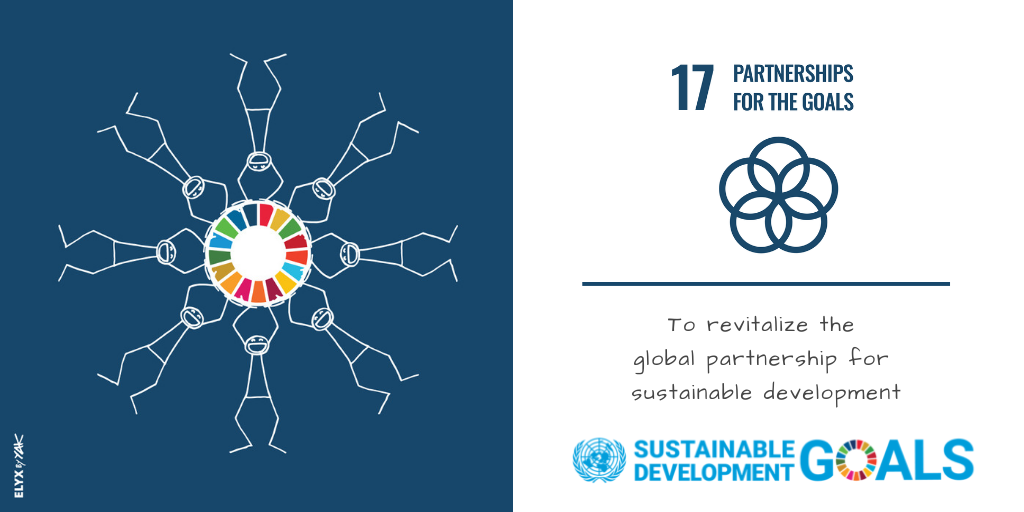The Financial Sustainability Series

The series of reports aims to harmonize the Sustainable Development Goals (SDG) framework for financial sustainability with the Environmental, Social and Governance (ESG) standards, in the context of the newly proposed reporting requirements of the European Banking Authority.
The Financial Sustainability Series will gather experts from the UN-launched SDG<MATCH platform, the European Banking and Financial Services Training Association and the Romanian Banking Institute, as the consortium implementer in Romania and the Republic of Moldova of the prototype certification on ESG for the banking and financial services sector, using blockchain technology, in support of the European Banking Federation’s goal to foster a green transition towards a more sustainable and responsible financial system.
Moldova’s Pathway towards Financial Sustainability

Supporting Moldova’s commitment to joining the European Union, the upcoming event in Chisinau will welcome banking leaders from Moldova and beyond, expressing their vision for the country. The Moldova report, part of The Financial Sustainability Series, aims to analyse the current indicators of financial sustainability, while at the same time producing policy recommendations and the adequate curriculum to prepare the banking specialists for the ESG reporting implementation requirements.
Publicizing the efforts of the European Banking and Financial Services Training Association through the sessions surrounding the launch of the report, while inviting the leaders of the financial services industry in Moldova to contribute their expertise and accompanying them in exploring the pathways towards financial sustainability, is in line with the commitment of the European Banking Federation to ensure a stable, secure and inclusive financial ecosystem.
Gas Diplomacy in the Eastern Mediterranean

A report by the International Crisis Group analyzes the main shifts in the region’s energy markets and economic relations.
"The U.S. pioneered what it called “gas diplomacy”, aspiring to use the region’s new energy wealth to bring its countries in conflict to the negotiating table. Israel and Egypt, the new finds’ main beneficiaries, co-founded a regional gas forum. The European Union (EU) launched a study for a pipeline that would carry Israeli and possibly Cypriot gas to Europe – a project that appeared timely indeed after Moscow’s all-out invasion of Ukraine in February 2022 choked off access to Russian gas. But the pipeline project now seems to be dead, due to commercial and environmental concerns. In this and other respects, the great expectations for gas discoveries in the eastern Mediterranean have proven outsized. All actors should now focus on a more modest objective – cultivating an inclusive approach to exploitation to promote regional integration and stability – and continue the move toward renewable energy sources."
 The World Economic Forum announces today the publication of its annual Top 10 Emerging Technologies Report featuring technologies with the greatest potential to make a positive impact in the world in the next three to five years.
The World Economic Forum announces today the publication of its annual Top 10 Emerging Technologies Report featuring technologies with the greatest potential to make a positive impact in the world in the next three to five years.
“Organizations make better choices when they understand the factors shaping the future. The report identifies technologies poised to significantly influence societies and economies,” said Jeremy Jurgens, Managing Director, World Economic Forum and Head of the Centre for the Fourth Industrial Revolution. “It also spotlights technologies with immense potential for revolutionizing connectivity, addressing the urgent challenges of climate change and driving innovation across various fields.”
 The global energy transition to a more equitable, secure and sustainable energy system is still progressing but has lost momentum in the face of increasing uncertainty worldwide, according to a new World Economic Forum report.
The global energy transition to a more equitable, secure and sustainable energy system is still progressing but has lost momentum in the face of increasing uncertainty worldwide, according to a new World Economic Forum report.
While 107 of the 120 countries benchmarked in the report demonstrated progress on their energy transition journeys in the past decade, the overall pace of the transition has slowed and balancing its different facets remains a key challenge. Economic volatility, heightened geopolitical tensions and technological shifts have all had an impact, complicating its speed and trajectory. There is, however, some reason for optimism, with increasing global investments in renewables and significant growth in energy transition performance in sub-Saharan Africa over the past decade.
The 14th annual edition of the Forum’s report, Fostering Effective Energy Transition 2024, published in collaboration with Accenture, uses the Energy Transition Index (ETI) to benchmark 120 countries on the performance of their current energy systems, with a focus on balancing equity, environmental sustainability and energy security, and on their transition-readiness. New this year to the report are “tailored pathways” for analysing country-specific characteristics, including income level and local energy resources, to provide region-specific recommendations.
 The Global Gender Gap Report 2024 reveals that the world has closed 68.5% of the gender gap. However, at the current pace it will take another 134 years – equivalent to five generations – to achieve full gender parity. Globally, the gender gap has closed by 0.1 percentage points since last year.
The Global Gender Gap Report 2024 reveals that the world has closed 68.5% of the gender gap. However, at the current pace it will take another 134 years – equivalent to five generations – to achieve full gender parity. Globally, the gender gap has closed by 0.1 percentage points since last year.
“Despite some bright spots, the slow and incremental gains highlighted in this year's Global Gender Gap Report underscore the urgent need for a renewed global commitment to achieving gender parity, particularly in economic and political spheres,” said Saadia Zahidi, Managing Director, World Economic Forum. “We cannot wait until 2158 for parity. The time for decisive action is now."
 The World Economic Forum announced the 2024 cohort of Technology Pioneers. The select group of 100 leading tech start-ups are focused on applying new breakthroughs in AI to develop clean energy solutions, healthcare innovation and progress in biotech, space and neurotechnology. They will contribute cutting-edge insights and expertise to the Forum’s global initiatives over the next two years and help scale their impact. Motivated by recent breakthroughs in the field, this year’s cohort is harnessing AI and data to drive sustainability and more equitable decision-making in industries and governments. In today’s dynamic landscape of rapid technological development, the community exemplifies the transformative potential and entrepreneurial spirit essential for shaping a better future.
The World Economic Forum announced the 2024 cohort of Technology Pioneers. The select group of 100 leading tech start-ups are focused on applying new breakthroughs in AI to develop clean energy solutions, healthcare innovation and progress in biotech, space and neurotechnology. They will contribute cutting-edge insights and expertise to the Forum’s global initiatives over the next two years and help scale their impact. Motivated by recent breakthroughs in the field, this year’s cohort is harnessing AI and data to drive sustainability and more equitable decision-making in industries and governments. In today’s dynamic landscape of rapid technological development, the community exemplifies the transformative potential and entrepreneurial spirit essential for shaping a better future.
 The latest Chief Economists Outlook presents a growing sense of cautious optimism about the global economy in 2024. More than eight in ten chief economists expect the global economy to either strengthen or remain stable this year – nearly double the proportion in the previous report. The share of those predicting a downturn in global conditions declined from 56% in January to 17%.
The latest Chief Economists Outlook presents a growing sense of cautious optimism about the global economy in 2024. More than eight in ten chief economists expect the global economy to either strengthen or remain stable this year – nearly double the proportion in the previous report. The share of those predicting a downturn in global conditions declined from 56% in January to 17%.
But geopolitical and domestic political tensions cloud the horizon. Some 97% of respondents anticipate that geopolitics will contribute to global economic volatility this year. A further 83% said domestic politics will be a source of volatility in 2024, a year when nearly half the world's population is voting.
Growth expectations have improved, though unevenly, across the globe. The survey reveals a significant boost in the outlook for the United States, where nearly all chief economists (97%) now expect moderate to strong growth this year, up from 59% in January.
Asian economies also appear robust, with all respondents projecting at least moderate growth in the South Asia and East Asia and Pacific regions. Expectations for China are slightly less optimistic, with three-quarters expecting moderate growth and only 4% predicting strong growth this year.


